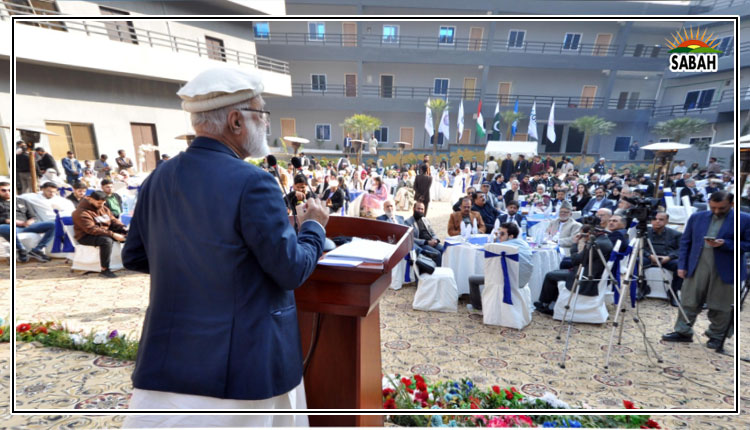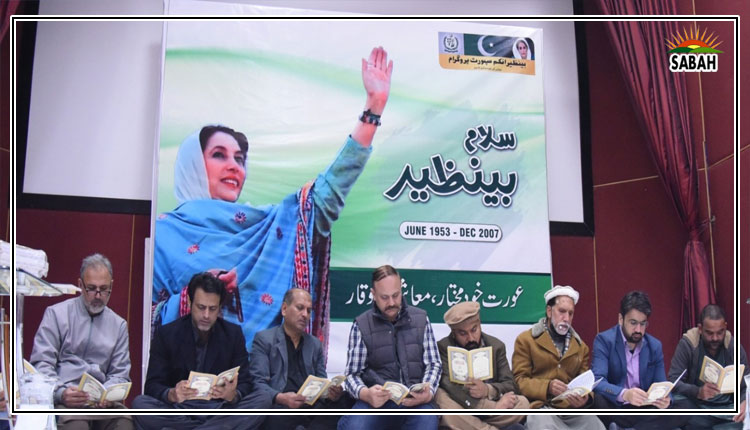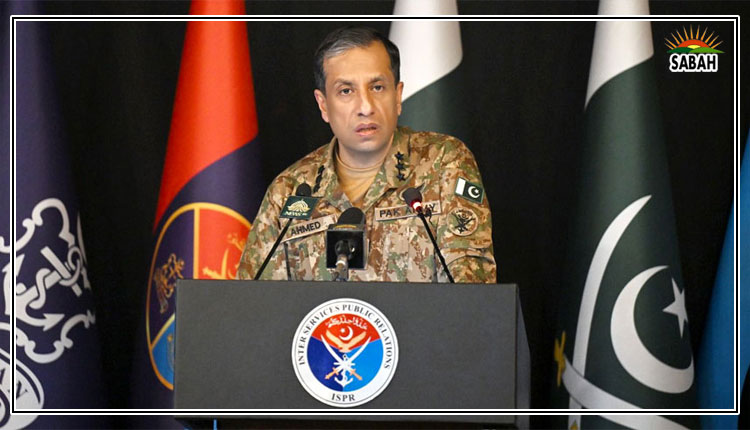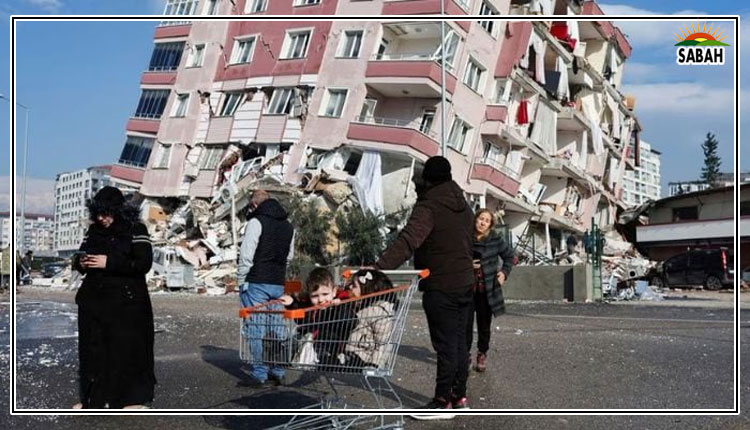Instability breeds disasters…Mir Adnan Aziz
Environmental scientists and experts believe that a hazard becomes a disaster only when fed by vulnerability. The UN World Meteorological Organization figures show that 90 per cent of the global disaster-related deaths occur in poor countries.
Experts also assert that blaming climate change alone is an escape hatch for public officeholders to evade responsibility for creating societal vulnerability.
Passing the buck is an ingrained trait of our power-elite. It is also their lifeline. Given their neglect towards better human development indices, they harp on and seek a utopia that shall be forged for us on their behalf by the developed world.
Outside the polar region, Pakistan, home to 7,000 glaciers, has the most glacial ice in the world. Again, scientists and experts have been crying hoarse for years that, due to rising temperatures, the country is likely to face unprecedented glacial melting and glacial lake outburst floods (GLOFs).
According to a UNDP report, melting glaciers have formed more than 3,000 lakes in Gilgit-Baltistan (GB) and Khyber Pakhtunkhwa (KP). Out of these, at least 33 lakes pose a serious threat to over seven million people living downstream. Freak weather patterns and rain deluges too predicted earlier have become a norm now.
We clamour about these travesties annually at international forums. Our predicament is that we simply cannot afford this devoid-of-action rhetorical luxury. Climate change has been here for decades. Given this fact, the heart of our problem remains our apathy and wilful inability towards any efforts at mitigating its predictive and destructive fallout. As a result, the Environmental Performance Index 2022 has us perilously poised at the 176th position among 180 countries.
Bangladesh remains perpetually in the eye of the storm. In 1970, Cyclone Bhola struck then East Pakistan; 500,000 died. This tragedy fomented further alienation and became a flashpoint for the bisection of Pakistan. In May 2020, super-cyclone Amphan made landfall in Bangladesh with 190 km/h winds and 17ft high storm-water surges. It caused 26 fatalities. Thousands of lives were saved through early warnings and provision of food and medical care to the evacuated.
This massive effort was realized by Bangladeshs Ministry of Disaster Management and Relief. It also oversees a trained force of 76,000 volunteers, half of them women. In 1970, East Pakistan had just 44 cyclone shelters. Today, according to International Red Cross figures, Bangladesh has 14,000 shelters with the capacity to accommodate five million people. Hygienic toilets have been built above expected flood levels, along with flood-resistant tubewells.
In Bangladesh, just $1 spent on preventive measures sees $123 in avoided damages and reduces the likelihood of floods from 20 to 4.0 per cent. Prudent policies and mitigative measures pay direct and huge dividends. It only happens in countries where human life is not just an expendable statistic. Today, Bangladesh is globally recognized as a trailblazer in the fight against disasters. Our apathy remains as predictable as our frequent disasters.
In 2019, the Senate Functional Committee on Human Rights was told that climate change accounted for 128,000 deaths annually and that children were increasingly prone to organ diseases. The average lifespan was said to be decreasing by two to five years because of environmental pollution. Forty-three per cent of deaths were said to be caused by low-grade oil with harmful contents being used by the transport and energy sectors.
Members were told that this oil was being provided by Pakistans five oil refineries which were still primitive and in their infancy. This one passage, an indictment in itself, is a stark testimony to the cruel hand being dealt to us with utter impunity.
NDMA figures show an average 189 per cent increase in rainfall across the country. In Sindh and Balochistan, it is a staggering 462 and 435 per cent respectively. The devastating floods of 2010 and 2022 were another example of our comatose governance. All that happened during the ensuing 12 years was the addition of 50 million children to the vulnerable list.
We are the fifth most populous nation in the world, and our population growth, compounded by ever-regressing social indicators, is exponentially increasing our vulnerability to natural hazards.
The horrendous aftermath of Pakistans 7.6 magnitude earthquake in 2005 saw the deaths of 87,350 people perish. Nineteen thousand of them were children who lost their lives in the disaster; around 17,000 schools were destroyed.
In 2010, Chile was struck by an 8.8-magnitude earthquake. The sixth strongest in history, it generated a tsunami with 29-metre tidal waves; 521 people lost their lives. Nowhere near as wealthy as earthquake-prone Japan, Chile, like Bangladesh, is another success story in disaster prevention. It was spared mass destruction because of strictly enforced building and zoning codes, sound infrastructure and a comprehensive disaster management protocol as compared to a totally compromised one in Pakistan.
Our criminal neglect of disaster prevention and management is the proven forerunner of catastrophes. Vulnerability breeds disasters. The critical need of the hour is to execute actions that reduce our vulnerabilities. Even if, because of self-created circumstances, we have to plead and seek aid and grants, they should be directed at anticipatory actions and risk reduction. Preventive plans and actions should be based on ample scientific data; weather forecasts; and simple steps as taken by Bangladesh, our erstwhile half.
An action plan, (ever) drawn out, shall only deliver if it remains devoid of our power-elites hyperbole and quixotic schemes. As it is, all we see are post-disaster theatrical sob stories showcased to the world with pleas for aid and reparations. Post-disaster rehabilitation is a callous euphemism to rake in post-tragedy dollars.
The dichotomy of our ruling dispensations is remarkably well-known and understood globally. It is one where our power-elite works heartlessly towards making our collective lives vulnerable and then expects to be compensated for the disasters it entails. More than climate change, it is this travesty that remains the excruciating tragedy of our vulnerable lives.
Courtesy The News












